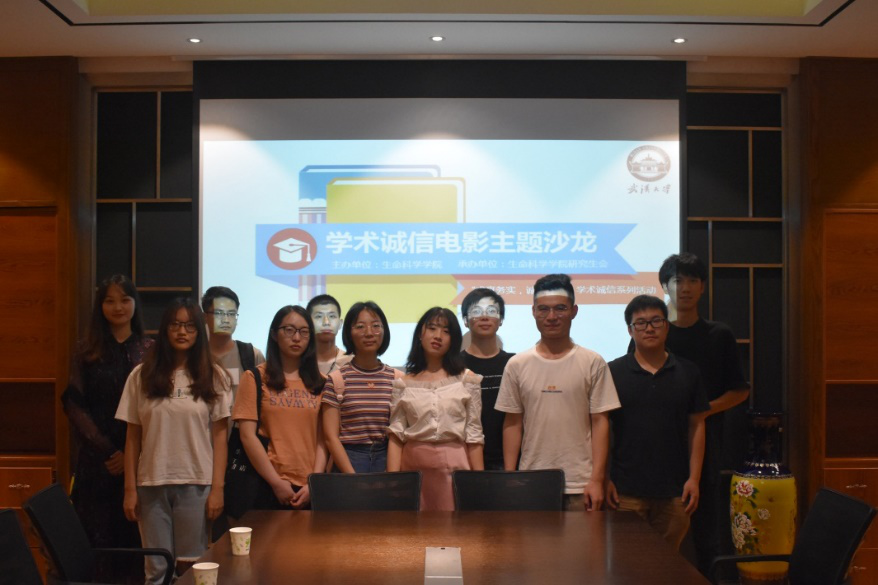On June 20, the academic integrity salon, a series of academic integrity activities called "being pragmatic, honest and trustworthy", was successfully held in the academic hall in our college.

The Lab: Avoiding Research Misconduct, an interactive video presented by American Office of Research Integrity (ORI), in which you have the opportunity to become four distinct characters and deal with issues of ethical conduct of research from a variety of perspectives. Designed to make every student abide by the academic integrity standard and practice the academic integrity standard with practical actions, this film was presented to promote and create an upright scientific research atmosphere.
Students played different roles like postdoc, third-year graduate students and ethics committee members respectively. When each protagonist is confronted with some difficult choices in the process of life and scientific research, a tutor for each character will provides the chance to examine the process of ethical decision-making.

The story of the post-doc revolves around the imbalance between family life and research work, which provides many related choices, such as to have dinner with your parents and give up collecting samples or to conduct experiments on time? To do experiments or take your wife to the hospital to check the health of your fetus? Some students said that it was more important to get the results on time, but the short film also suggested that we should try to find a balance between life and experiment. Although research is important, life is equally important.

The second story is about a third-year graduate student who found her experimental data were deliberately tampered and used for publication by her senior fellow apprentice. The film emphatically reminds us that if we encounter such problems, we should not communicate with the person directly, which may leak information to the person and thus hinder the subsequent investigation. We should directly seek help from the relevant ethics department of the college or university.
Finally, by playing the role of administrative personnel responsible for the supervision of scientific research integrity, the students learned the standard of credible accusation, and realized the correct form and process of accusation. At the end, the film emphasizes that science can never deceive.

After watching the film, the content of the film aroused heated discussion among the students. Just as we may perform countless experiments to confirm a hypothesis, ethical decision making also takes perseverance and practice. Keep practicing, until making ethical leadership decisions is part of our moral "muscle memory". Then, when we're faced with moral dilemmas, this process will be second nature to us, yielding successful outcomes.

